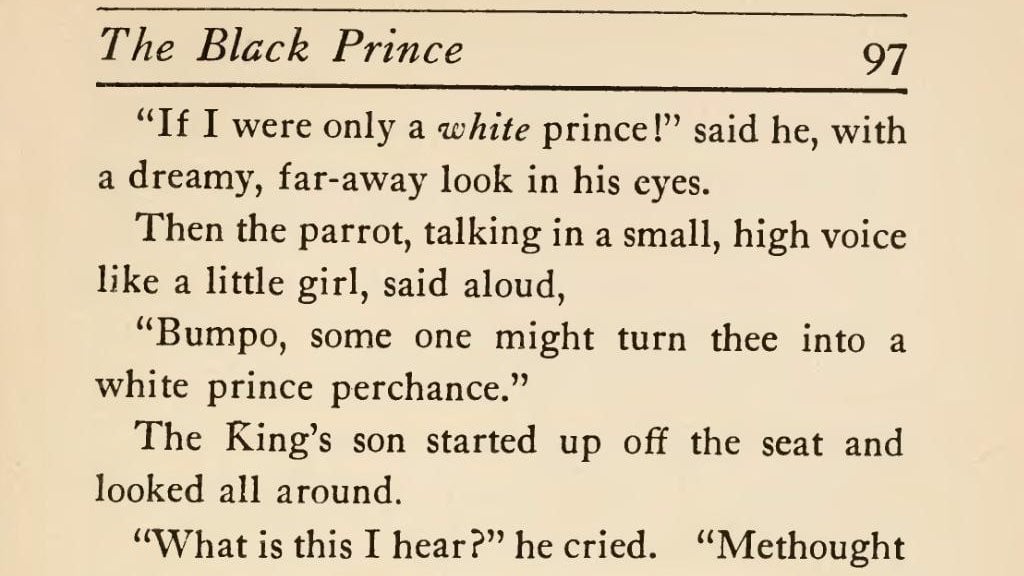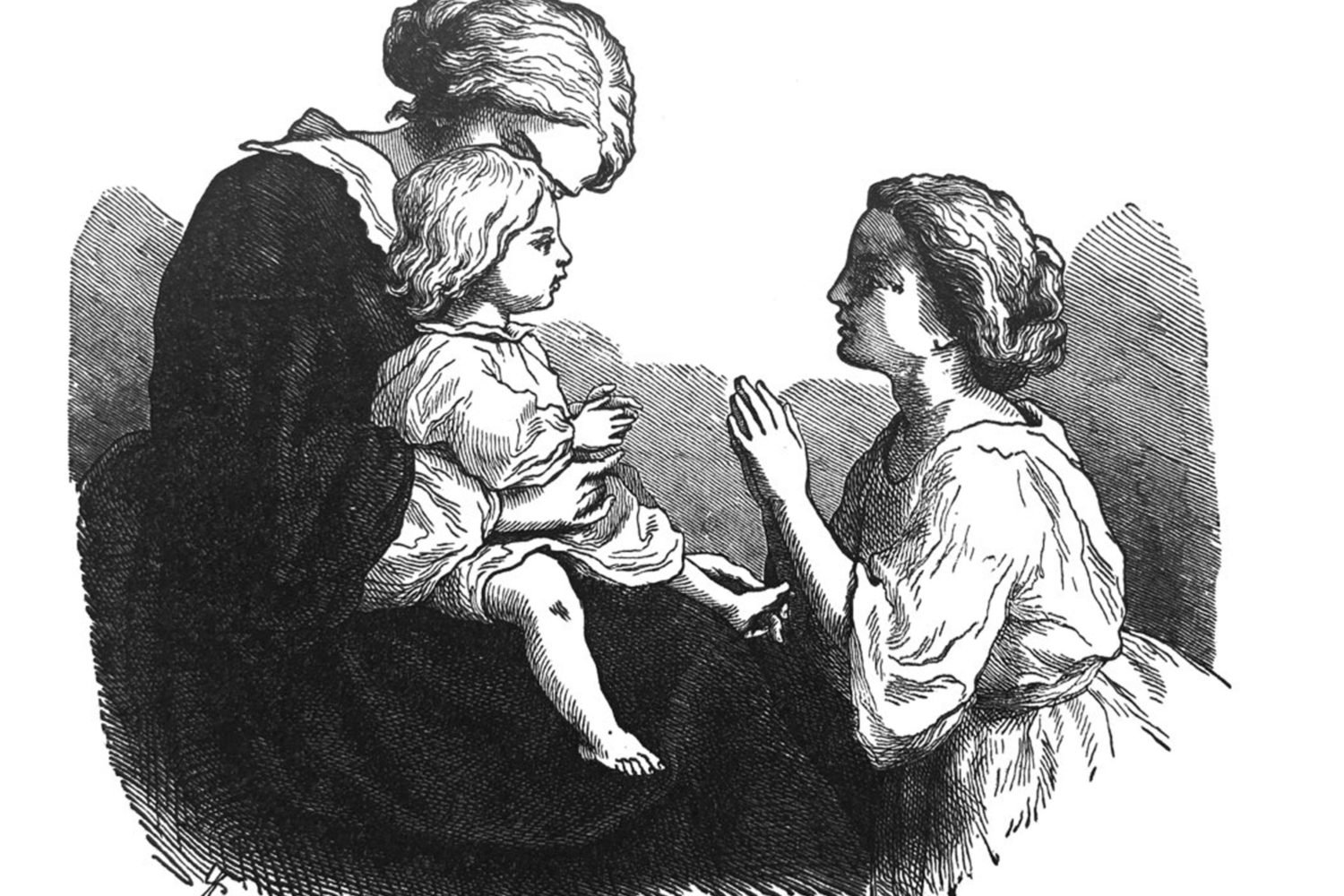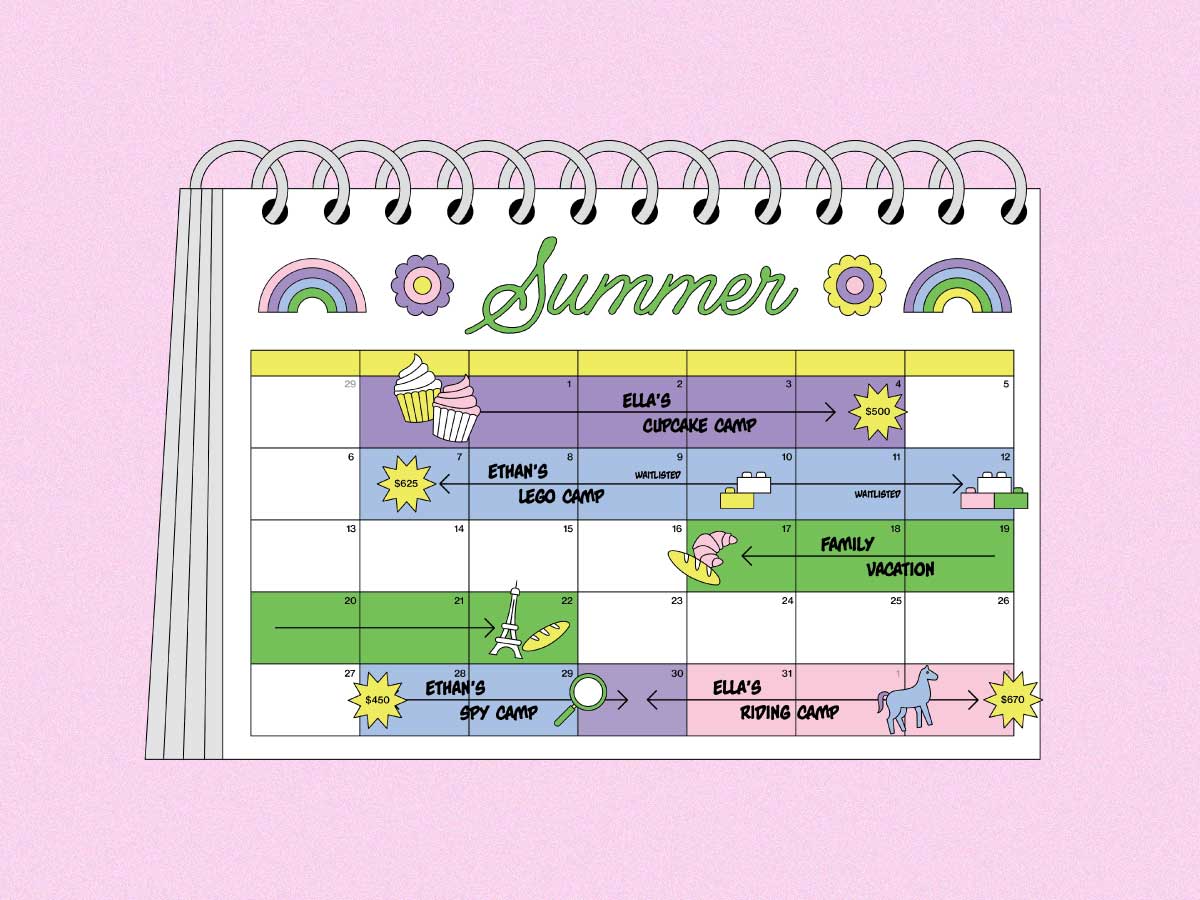“Poppa, can you tell me a story?”
My five-year-old son makes this request many times a day: as we’re eating breakfast, on the ride to school, when we’re out for a walk, when he’s supposed to be taking a bath (but is mostly splashing water out of the tub), and before he goes to bed. Like many children, he has an insatiable appetite for stories. But conjuring up tall tales can be tough work for parents, especially before morning coffee or when burnt out at the end of a long day.
Stephanie Garibaldi, a story coach and director of live storytelling events, has worked with Story District in Northwest for over a decade, training everyone from 5-year-olds to CEOs on the art of the story. Here are her eight tips for taking your next story from a string of uninspired anecdotes to the greatest yarn-spun tale your child has ever heard.
Get your child involved
Ask her for characters or scenarios. “But you can’t cheat,” says Garibaldi. “You really have to weave in their requests or else they’ll be disappointed that their ideas were only tangentially a part of the story.” If she’s low on ideas, give her a choice between stories so she still feels part of the creative process. For example: “You can either hear a story about a fairy princess who lost her unicorn or the tale of the invisible dinosaur who had a hard time making friends.”
Use a simple structure
The easiest place to start is “Once upon a time…” Establish where the story is happening, introduce the main character, and reveal his or her motivations or desires. Then comes the inciting turning point, “Until one day when…,” which disrupts the narrative and sets the character off on an adventure with a clear-cut goal. The character should face three obstacles, each larger than the last. If your character is underwater trying to recover a stolen treasure, he needs to first out-swim a swarm of jellyfish, then outfox a shark by luring it into a trap, and finally, defeat a kraken. The story climaxes with him achieving—or, alternatively, failing to accomplish—his goal, and ends with the consequences of this success or failure. “You won’t be pitching your story to George Lucas,” says Garibaldi, “so don’t stress about how good you think it is.”
Make your child the star
“Kids love seeing themselves interacting with a very different world,” says Garibaldi. You don’t have to explicitly say your child is the heroine, but give her enough details to understand she’s hearing a story about herself. Maybe the character likes the same food as her, says the same phrases, or has similar physical features. It never hurts to give your child some super powers or magical abilities, too. Because what kid doesn’t want to fly or cast a spell and conjure a genie?
Work through an issue
If your child is grappling with a problem, use the story as a way to untangle the situation and present a solution. This way, you’re not simply offering him advice or telling him what to do; you’re guiding him in an organic way that makes him feel like he’s coming to his own conclusion about what to do. “It’s an easy way to get them to see a new perspective,” says Garibaldi.
Engage the senses
“Don’t panic—you don’t have to be a master actor or the guy who reads the Harry Potter audiobooks,” says Garibaldi. Stick to the basics. Describe what the character is smelling, tasting, seeing, and feeling. Add sound effects. And give your characters different voices. If you don’t feel like you can pull off convincing accents, Garibaldi recommends you act out characters by using a different gesture for each one. Wield a sword like a brave knight. Gnash your teeth like the dragon staring the brave knight down.
Remember your audience
If your audience includes multiple children of varying ages, always keep your littlest listener in mind. Steer clear of scary stuff or material that might otherwise be inappropriate. But that doesn’t mean you have to forget an older child. “Think about how they put adult jokes in Disney movies,” says Garibaldi. “They go right over a three-year-old’s head, but the parents appreciate them.”
Repetition is your friend
“Kids love hearing stories over and over again,” says Garibaldi. “It’s very comforting for them.” So don’t feel bad if you can’t think of a new story and simply retell a favorite one from your arsenal.
Tell the truth
Not in the mood to spin something new? Tell a story from your past. In particular, kids love to hear about what mom or dad did when they were the same age. “Especially when you’re one of those rare parents who can admit when you did something wrong, or you made a decision you weren’t proud of,” says Garibaldi. “It’s fantastic for kids to know that their parents are people, too, who went through the same stuff they’re going through.”



















